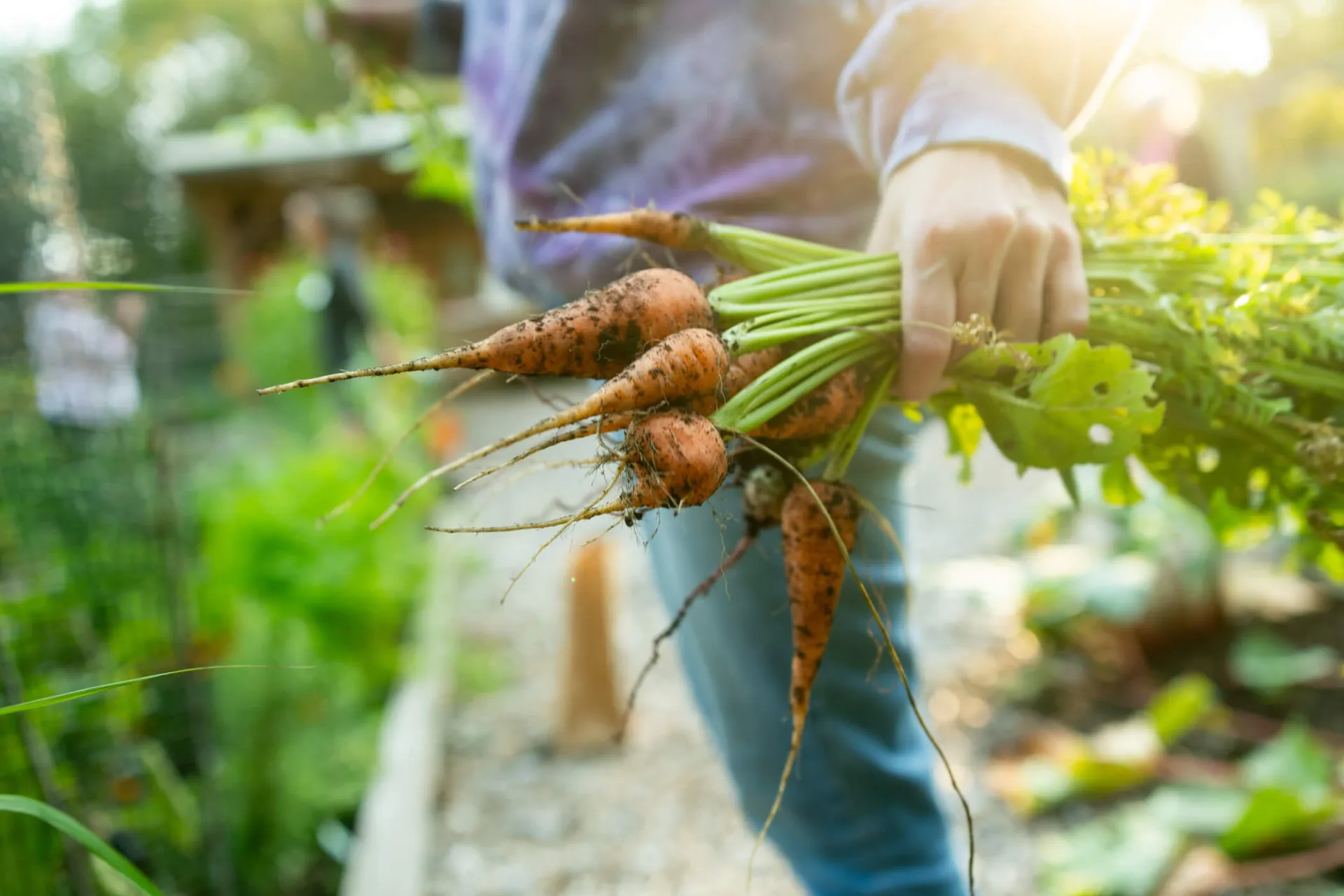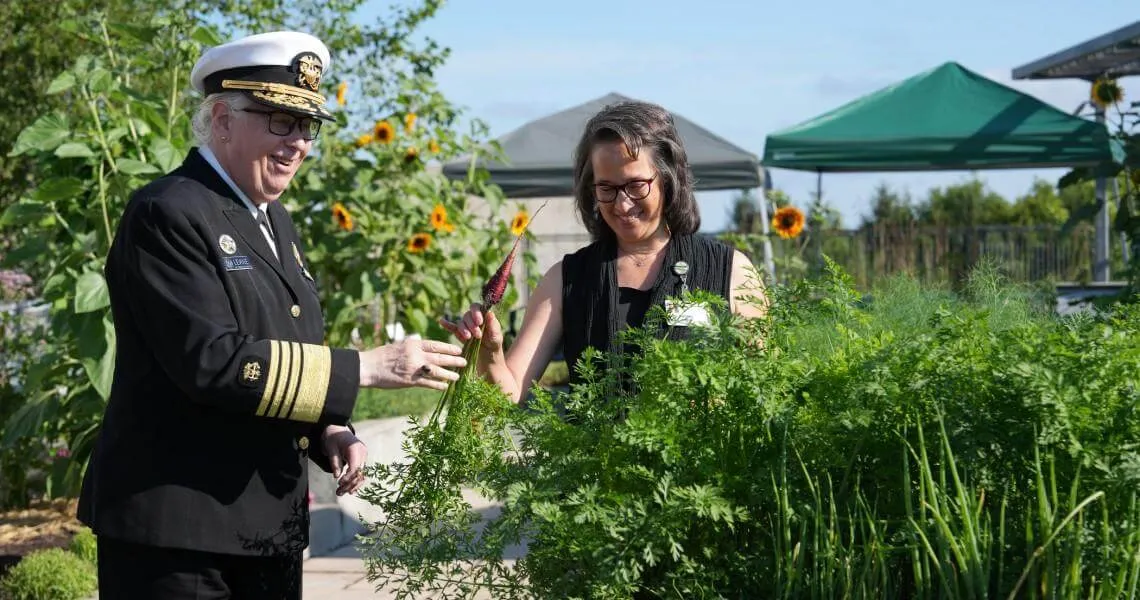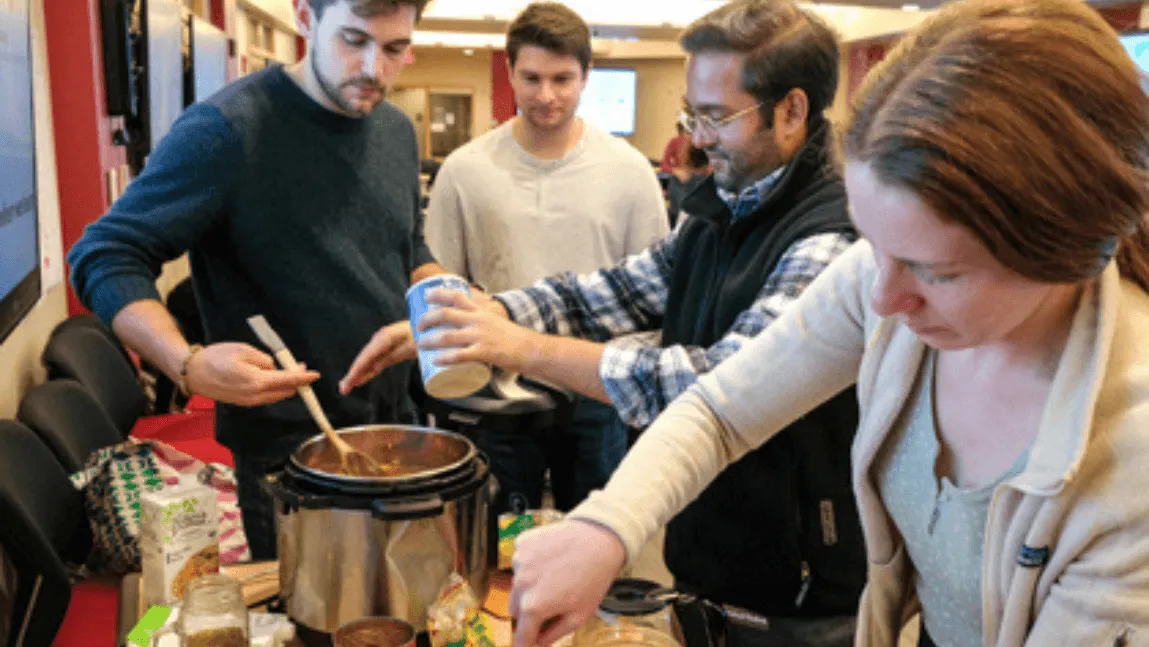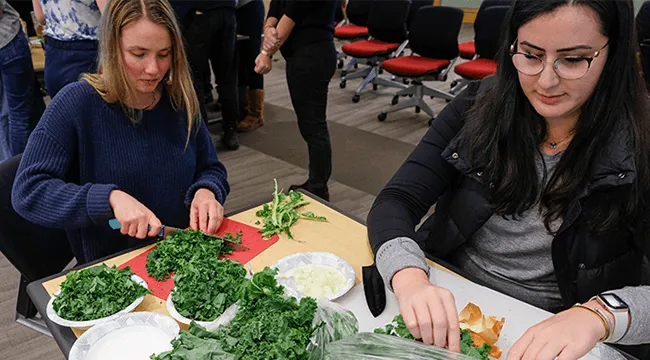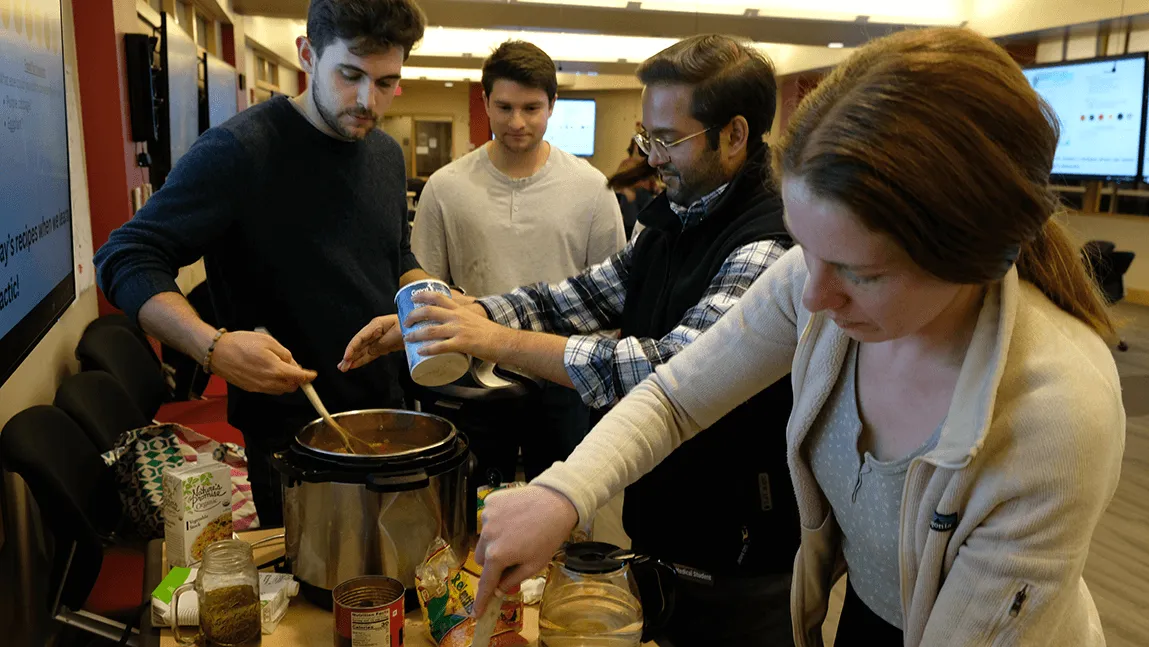In a quiet library in Northfield, Vermont, this past winter, the scent of chia pudding and herbal tea mingled with laughter and conversation. But this wasn’t just a cooking class—it was part of a groundbreaking initiative blending nutrition, mental health, and community connection. The “Food and Mood” program, led by the University of Vermont Medical Center’s Culinary Medicine team in partnership with the UVM Health Network Primary Care Mental Health Integration (PCMHI), has spent the past year transforming how rural Vermonters experience healthcare.
The project team included Sravan Kakani, MD, Physician Psychiatry from UVMHN, PCMHI, and, from UVMMC Culinary Medicine (CM) Leah Pryor, Executive Chef Manager, Christina Vollbrecht, Chef Educator; Rachel Boyers, Garden Educator, Melissa Kelly, Registered Dietitian, and Emily Sheppard, Office Administrator.
Launched under the Bi-State Food Access in Health Care Sub Grant, the program brought together chefs, doctors, dietitians, and garden educators to deliver hands-on culinary medicine sessions in non-traditional settings—from libraries to churches to community health centers. The goal? To make food a tool for healing, especially in communities with limited access to fresh, nutritious ingredients and mental health support.
A Mobile Teaching Kitchen Without Walls
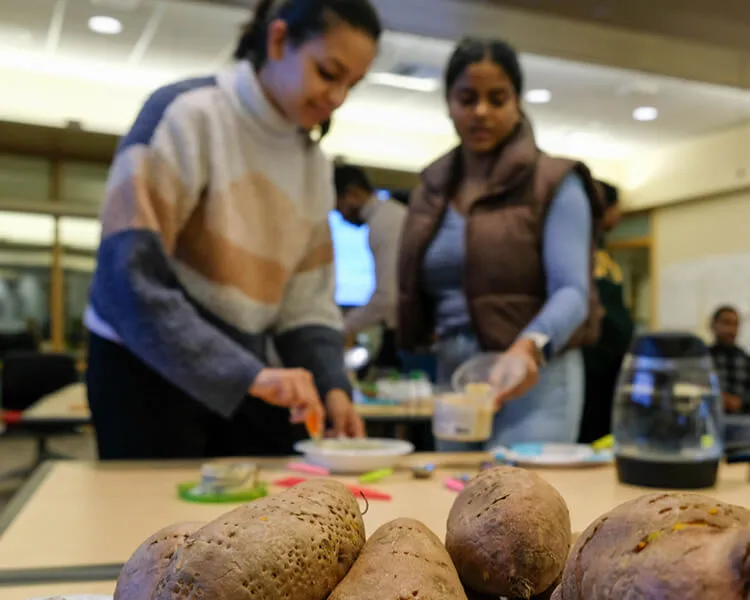
Unlike traditional teaching kitchens, “Food and Mood” is entirely mobile. With minimal equipment and no need for electricity or ventilation, the team traveled across six Vermont counties—Washington, Addison, Orange, Franklin, Grand Isle, and Windsor—reaching 49 participants across six sessions. Each 90-minute class combined cooking demonstrations, sensory experiences, and open discussions about food, mood, and mental health.
Participants left with more than just recipes. They took home chia seed pudding kits, microgreen growing supplies, herbal teas, and even live edible flower plants—tools to continue their wellness journey at home—and deeper connection to their communities.
Science Meets Storytelling
The program’s impact wasn’t just anecdotal. Using a modified mood survey, participants reported an average 20.2% improvement in mood during the sessions. At one session, mood scores improved by a striking 35%. One participant, managing type II diabetes without insurance, said they learned more in one session than in years of clinical visits.
"This is healthcare that comes to you,” said Christina Vollbrecht, MA, MS, RDN, Chef Educator and report author. “It’s low-cost, low-barrier, and deeply human.”
A Model for the Future
The program’s success has sparked interest across the state. The Seneca Center in Burlington is beginning a “Food and Mood” pilot as a shared medical appointment, testing insurance reimbursement models to ensure sustainability. Meanwhile, the Larner College of Medicine plans to introduce the curriculum to first-year students, embedding culinary medicine into the next generation of doctors’ training.
Despite its success, the team acknowledges challenges—particularly around recruitment and funding. But the open-source curriculum and “train-the-trainer” model offer a path forward. Community leaders, libraries, and senior centers have already expressed interest in hosting future sessions.
Healing Through Food, Together
At its heart, “Food and Mood” is about connection—between people, between disciplines, and between what we eat and how we feel. It’s a reminder that healthcare doesn’t always need a hospital. Sometimes, it just needs a table, a few herbs, and a willingness to listen.
